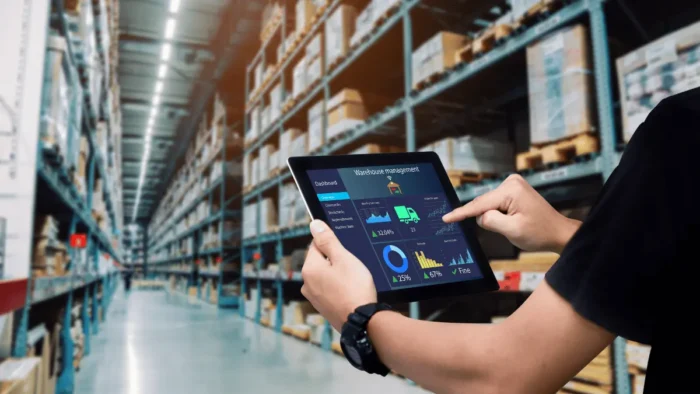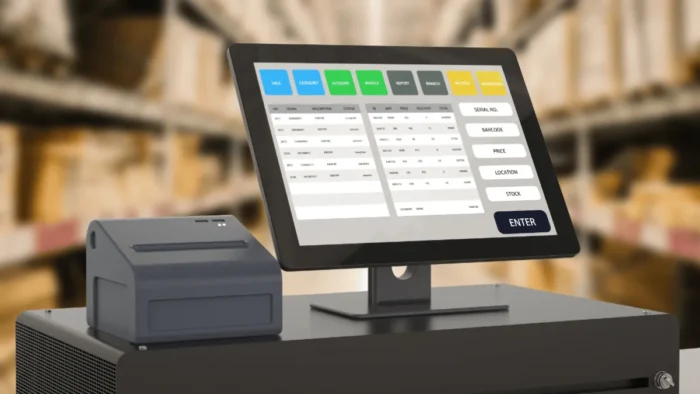Technology is crucial in today’s fast-paced corporate environment for optimizing processes and improving consumer experiences. The Point of Sale (POS) system is a technical marvel that has completely changed the retail and hospitality sectors. A POS system is a complete software and hardware package that allows businesses to handle transactions, manage inventory, analyze sales, and gather insightful data to help them make deft business decisions.
We’ll go into detail about a POS system in this blog post, including what it is, how it functions, and why your company needs one to be competitive in the contemporary market.
Streamlined Transactions and Enhanced Customer Experience
At the heart of any retail or hospitality establishment lies the need for smooth and efficient transactions. A modern POS system empowers your business to process transactions swiftly and accurately, eliminating the need for manual calculation and paperwork. The system can handle a variety of payment methods, including credit cards, mobile payments, and even contactless transactions, ensuring a seamless checkout experience for your customers.
For instance, imagine a busy restaurant during peak hours. With POS systems in place, servers can quickly take orders on handheld devices, sending them directly to the kitchen, reducing order processing time and minimizing wait times for customers. Moreover, customers can split bills effortlessly, redeem loyalty points, and receive digital receipts via email or SMS, contributing to an overall positive and memorable dining experience.
Effective Inventory Management
Effective inventory management is crucial for optimizing stock levels and preventing stockouts or overstocking issues. POS systems offer advanced inventory management features, allowing you to keep track of stock levels in real-time and automate the reordering process. This means you’ll never run out of popular products and won’t tie up capital in excess inventory.
For instance, a retail store can set up automatic reorder points for their best-selling items. When the stock reaches a certain threshold, the system generates purchase orders and notifies the store owner, ensuring a continuous supply of popular products on the shelves without manual intervention.

Sales and Performance Analytics
Data-driven decision-making is a hallmark of successful businesses, and a POS system provides you with a wealth of sales and performance analytics. Analyzing sales data, you can identify top-selling products, peak sales periods, and customer buying patterns. These insights can guide marketing strategies, inventory planning, and staff scheduling to optimize business performance.
Integrated Customer Relationship Management (CRM)
Building strong customer relationships is essential for customer retention and loyalty in today’s competitive market. POS systems often come with integrated CRM features that enable businesses to capture customer information, track purchase history, and offer personalized promotions and discounts.
Employee Management and Performance Tracking
Managing employees effectively is vital for maintaining operational efficiency and ensuring excellent customer service. Many POS systems offer employee management functionalities like clock-in/clock-out features, commission tracking, and performance evaluation tools. For example, a POS system used in a retail store can track individual sales performance, allowing managers to recognize top-performing employees and identify areas where additional training or support is needed.
Cloud-Based POS Systems for Flexibility and Accessibility
With the advent of cloud technology, many POS systems have transitioned to cloud-based solutions. Cloud-based POS systems offer several advantages, including flexibility and accessibility. Unlike traditional on-premise systems, which require dedicated hardware and local servers, cloud-based POS systems operate over the Internet and can be accessed from anywhere with an Internet connection. This allows business owners and managers to monitor their sales and inventory in real time, even away from the physical location.
Integration with Other Business Tools
A modern POS system is not just a standalone tool but can also integrate with other business tools and software. These integrations can streamline various aspects of your business operations and save time by eliminating the need for manual data entry and duplicate work.
For example, a restaurant POS system can integrate with accounting software, allowing sales data to be automatically transferred to the accounting system for seamless bookkeeping. Moreover, integration with an e-commerce platform can help synchronize online and offline inventory, enabling businesses to manage all sales channels efficiently.
Conclusion
In conclusion, a Point of Sale system is a game-changer for businesses across various industries. It can significantly improve operational efficiency and boost profitability, from streamlining transactions and enhancing customer experiences to offering robust inventory management and data-driven insights. As technology advances, adopting a modern POS system becomes imperative for businesses looking to stay competitive and meet the evolving demands of their customers.
So, if you haven’t already embraced this revolutionary technology, it’s time to consider integrating a POS system into your business operations and take a leap toward a more successful and prosperous future.





